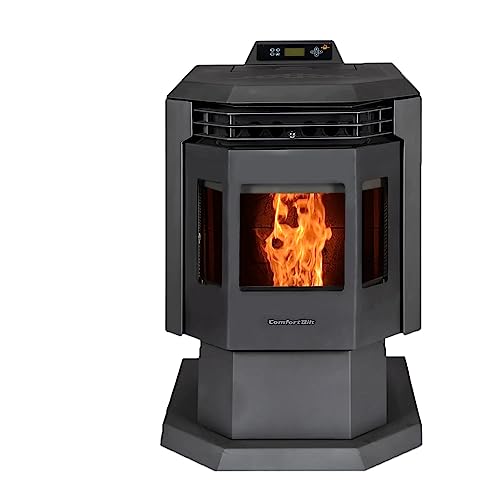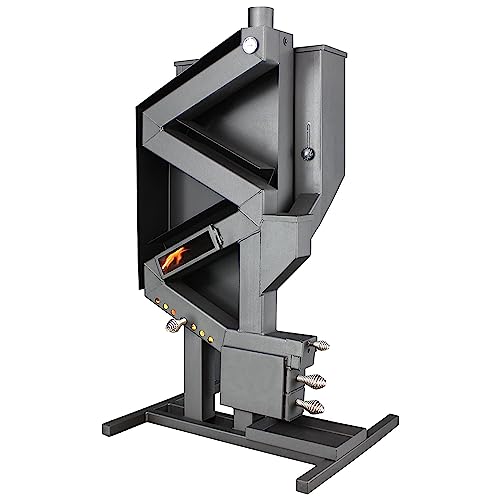ducted pellet stove Stoves For RVs Vs Wood Stoves
RVs provide a comfortable camping experience, however cold nights require a reliable heating source. Wood stoves and pellet stoves are two popular options. Both stoves have their own advantages, but the right one is dependent on your individual needs and preferences.

Pellet stoves are powered by biomass that is renewable, made of recycled sawdust and wood chips. They are extremely efficient and provide steady heat. They are also simple to use and don't emit harmful emissions.
Heating that is cost-effective
Pellet stoves for rvs are a viable alternative to propane-based heaters. They use a renewable biomass and have a high combustion efficiency, which can save you money over the course of. They also use less energy, which reduces the carbon footprint and energy consumption. In addition, pellet stoves have an incredibly compact design and can be used with any standard propane tank. This makes them a great option for those looking to skip the hassle of refilling and storing propane tanks.
The ability of an oven to heat a large area is among its main advantages. A good stove can heat an entire camper or motorhome. The top pellet stoves for RVs can provide up to 8,000 BTUs of heat, enough to keep you warm and comfortable on a camping trip. Some models have thermostats that can be programmed that automatically turn on and off the stove according to your schedule. They also notify you when the pellets have run out or require cleaning.
Wood and pellet stoves are both popular options for RVs, and both provide excellent heating performance. They are also economical and are suitable for different climates. Before you decide on a stove, you should know the differences between the two kinds of stoves.
Wood stoves require firewood which is collected with care and stored. This could be a challenge for those who travel in remote areas. Wood can also absorb moisture from the air and cause issues with your RV's interior. However you can get an array of wood-based fire logs for your RV stove from online retailers. These logs can save you lots of time and effort by letting you concentrate on your travels instead of fueling.
Convenient cooking
If you're an avid camper and love to cook, you'll love the convenience of cooking on pellet stoves. These stoves are designed to extract the maximum amount of heat from the fuel, leading to high energy efficiency and lower heating costs. These stoves also have automatic pellet feeding systems and thermostatic controls that keep the same temperature. Furthermore, you can utilize them as a back-up heating source in case of power outage.

Wood stoves are a popular option when camping in RVs. Wood stoves are an excellent option for boondocking, or camping without hookups. They require ongoing maintenance and regular cleaning to remove creosote and ashes. They also depend on firewood, which can be costly and difficult to locate in remote regions. In addition, they typically require adequate ventilation to avoid the accumulation of carbon monoxide and smoke in the camper.
Pellet stoves are more convenient than wood stoves, and offer the same heating performance and comfort, but needing significantly less maintenance. They are also much cheaper than gas heaters and produce fewer ash and particulates. Pellet stoves are also more ecologically green than wood stoves because they function as an almost carbon-neutral source of energy.
Pellet stoves may be more efficient than wood-burning stoves however, they still require power from an electrical source. If your electricity is not working the stove won't function properly and could cause danger. To ensure your safety and warmth, it's a great idea to have an emergency generator or plan for power outages. Fortunately, many pellet and wood stoves are equipped with battery backup systems or manual ignition options to prevent these problems.
Versatile
Wood pellet stoves are the perfect option for RVs as they create a warm and comfortable atmosphere, while also being cost-effective. They can also be utilized as a backup in the event of power failure. Some models come with an emergency battery backup system to ensure that the stove is operating for a long time. Pellet stoves are also easy to use and require minimal maintenance. It is important to note that they require proper ventilation and installation.
Contrary to propane stoves that introduce gases and moisture into the air Pellet stoves burn dry combustible materials that produces clean, odorless heat. They are also simpler to use than traditional wood stoves, and they generate more heat in a shorter amount of time. Pellet stoves are not only ideal for heating but can also be used to cook, making your RV into a functional kitchen. This feature is particularly useful in remote locations and can help you save money on dining out.
Pellet stoves aren't just cheaper, but they are also more secure than gas and electric models. The
modern pellet stove stoves also emit less smoke, which reduces the risk of fires and indoor air pollution. You should be aware that they require electricity to operate their automatic ignition systems and pellet feed system. They may also require more frequent refills of pellets than gas stoves.
Before installing a wood stove in your RV, you should take into consideration some of the factors and limitations. For instance, you'll need to keep the wood supply nearby and make sure the RV has enough storage space for the hopper of the stove. Wood stoves also generate lots of heat, which can cause walls and ceilings to warp or blister. Look into a stove that comes with an insulation layer or a surface protection kit.
Compact
Pellet stoves are compact and easy to use. They feature a powerful combustion process, and high heat output which makes them a great choice for RVs. They also disperse heat evenly, which ensures a comfortable camping experience. You can easily control the amount of heat you wish to generate and maintain a consistent temperature. The SoloWilder PIKE Camping pellet stove, for instance, features a durable construction and optimized heating system that makes it a fantastic choice for campers.
The fuel hopper is where you store the pellets that are then introduced into the burn pot by an auger. They are usually made from compressed sawdust and wood byproducts, but some stoves also accept other types of biomass, like nutshells and corn kernels. The fuel is dense, which makes it burn more hot and cleaner as well as reducing smoke and waste emissions. The stoves are energy efficient and have high efficiency, ranging from 70 to 83 percent.
The majority of pellet stoves are low maintenance and are easier to operate and light than traditional wood stoves. They can be noisy, and require a space to store pellets that is cool and dry. They're also electric and require electricity (not suitable for camping off grid). If you are considering the use of a pellet stove, select one with an energy efficiency certificate.
One disadvantage of pellet stoves is that they cost more than traditional fireplaces that burn wood and require a huge storage space. A
mini pellet stove stove will consume a 40-pound box of pellets daily and the bags could be costly. They also require electricity, which can drain your battery backup.
Safety
Pellet stoves allow you to enjoy a crackling fire in your RV without having to store or transport firewood. They produce less smoke and ash and are more easy to ignite than wood stoves. They also create an inviting, warm atmosphere. However, it's important to know the health implications involved when using a pellet stove. People with respiratory issues as well as children and older adults should take extra precautions and seek medical advice prior using a stove.
Most models have an electronic control system that automatically feeds pellets into the combustion chamber. This lets them burn at a specific rate. These stoves also come with a thermostat that can be programmed to maintain the desired heat level. They also come with an automatic cleaning system that helps to remove the accumulated clinker or ashes.
A pellet stove requires electricity and ventilation in order to function despite its sophisticated features. Therefore, it might not work during power outages. In such instances, you should have an alternate plan, such as a generator for your heating needs.
Another issue with pellet stoves is the combustion process, which releases toxins and carbon monoxide into the air. This is a major issue for those suffering from chronic respiratory illnesses, such as COPD or asthma. Carbon monoxide detectors are essential for homes. They should be located close to bedrooms, on every level of the house and checked regularly.
Pellet stoves can be an excellent option for camping, especially in areas that have harsh winter conditions. They are simple to operate and are affordable however, they require electricity to run. If you are planning to camp off-grid, you will need to ensure you have enough wood to fuel your stove.

 Pellet stoves are powered by biomass that is renewable, made of recycled sawdust and wood chips. They are extremely efficient and provide steady heat. They are also simple to use and don't emit harmful emissions.
Pellet stoves are powered by biomass that is renewable, made of recycled sawdust and wood chips. They are extremely efficient and provide steady heat. They are also simple to use and don't emit harmful emissions. Wood stoves are a popular option when camping in RVs. Wood stoves are an excellent option for boondocking, or camping without hookups. They require ongoing maintenance and regular cleaning to remove creosote and ashes. They also depend on firewood, which can be costly and difficult to locate in remote regions. In addition, they typically require adequate ventilation to avoid the accumulation of carbon monoxide and smoke in the camper.
Wood stoves are a popular option when camping in RVs. Wood stoves are an excellent option for boondocking, or camping without hookups. They require ongoing maintenance and regular cleaning to remove creosote and ashes. They also depend on firewood, which can be costly and difficult to locate in remote regions. In addition, they typically require adequate ventilation to avoid the accumulation of carbon monoxide and smoke in the camper.